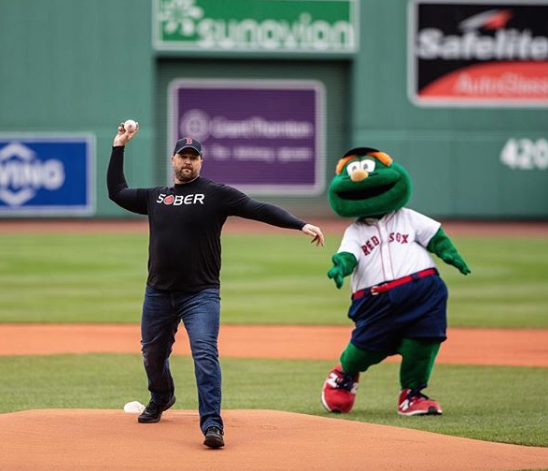Editor’s note: This op-ed was contributed by Sydney Durand, the Massachusetts Director of Programs for The Phoenix. The Phoenix is a non-profit that provides a free sober active community for people in recovery. This op-ed is part of our Special Series on Stigma and Addiction.
Even in a nation that has spent substantial resources combating the addiction epidemic, for many there remain significant barriers to accessing care, such as long waiting lists for treatment beds, high financial cost to receiving quality care and lack of long-term recovery support services. While the US has made significant strides in bending the curve of addiction related deaths in recent years, many of these challenges will require additional financial investment, time and innovation to meet the need. One less tangible, but equally strong barrier to overcoming addiction, however, is the concept of stigma.
“Stigma” is a pervasive and widely used term in the Addiction/ Recovery world today. It is defined as a mark of disgrace associated with a particular circumstance, quality, or person. When The World Health Organization studied the 18 most stigmatized conditions in 14 different countries, it found illicit drug addiction to be the most stigmatized condition with alcohol close behind coming in fourth. While the field has come a long way in recent years – scientifically validating that substance use disorder is in fact a disease and not a moral failing – there remain biases, both conscious and not, that fuel stigma. Part of stigma’s dominance comes from the fact that it affects both ends of the addiction spectrum – it not only discourages those seeking help in the first place, but also deters people from sharing their success of achieving recovery.
While there is no question that multi-pronged and innovative approaches are required to solves this public health crisis, one organization that actively removes common barriers, especially stigma, is The Phoenix – a sober active community open to anyone with a minimum 48 hours of continuous sobriety. By harnessing the power of physical activity and social connection, The Phoenix creates a space for those pursuing a sober life to heal, find strength and thrive in recovery.
At the core of Phoenix are free community fitness programs such as CrossFit, yoga, rock climbing and mountain biking that are led by peers in recovery. By participating in Phoenix, program participants, referred to as team members, are empowered to recover out loud and share their story of hope. Whether it’s wearing a T-shirt that reads “SOBER” across the front, lifting a kettle bell next to someone with a similar past, or simply introducing themselves and identifying as ‘In recovery’ before a workout, Phoenix members are beacons of hope that recovery is not only possible, but it’s something to be revered. By branding recovery as cool, fun and a means to flourish – The Phoenix shatters previous stigmas of recovery equating to a life full of limits.
There are countless instances where a Phoenix member shares that because they were open about their recovery on social media or in the community, that an old friend or current family member reached out to them for help. These moments are enough proof for us to realize the importance of reducing stigma.
As The Phoenix grows nationally, its mission is moving outside of gyms and into the community. This Spring, The Phoenix partnered with the Red Sox to reach a wider audience in the New England area. The sponsorship with the Red Sox will allow The Phoenix to spread its mission of offering hope to those in recovery by emphasizing the philosophy of “Rise as One” centered on the role of community in shifting the mental model of addiction and recovery. This marks the first time the Red Sox have partnered with a nonprofit organization focused on the issue of addiction and recovery, and the only nonprofit sponsor for the current season.
We all know someone who has been affected by this disease. Through this unique sponsorship, the Red Sox are helping us to share our mission with the community, remove the barrier of stigma that is critical for support, and encourage as many people as possible to Rise, Recover and Live.






Mark Graham June 15, 2019
It is my hope that we can connect to a wider audience in Chicago as Boston is doing. Breaking these barriers in a profound way. We have the opportunity and are taking the steps to achieve this nationwide. As Phoenix continues to grow, more lives will be spared. Keep fighting the good fight.